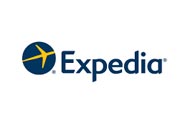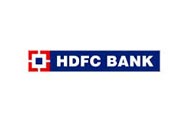A travel meta search engine is a specialized online tool that aggregates travel-related information from multiple sources, allowing users to compare options such as flights, hotels, and car rentals all in one place. Unlike traditional travel booking websites, which often have their own inventory, a meta search engine pulls data from various online travel agencies (OTAs), airline websites, and other travel platforms. This enables users to quickly assess availability, prices, and features across a wide range of options, streamlining the travel planning process.
These engines typically provide a user-friendly interface where travelers can input their search criteria, such as destinations, dates, and budget. The aggregated results are then displayed with sorting and filtering options, allowing users to easily navigate through their choices. By offering comprehensive comparisons and up-to-date information, travel meta search engines empower users to make informed decisions and find the best deals, ultimately enhancing their overall travel experience.
Setting up a meta search engine can vary significantly in cost based on several factors, including the complexity of the platform and the resources required. Development costs alone can range from $5,000 to over $50,000, depending on whether you hire an in-house team or outsource the project. This includes expenses for backend and frontend development, user interface design, and the integration of various APIs or web scraping tools to gather data from multiple travel sources.
In addition to development, ongoing costs such as hosting, maintenance, and data source fees can add up. Hosting on scalable platforms like AWS or Google Cloud may start at a few hundred dollars per month but can increase with higher traffic. Data source fees can vary based on the agreements you have with various travel providers, and marketing expenses to attract users can further increase initial investments. Overall, a comprehensive budget is essential, potentially bringing total costs to anywhere from $50,000 to several hundred thousand dollars, depending on the scale and features of your meta search engine.
Key features of a meta search engine
include comprehensive data aggregation, allowing users to access results from multiple travel sources simultaneously. This includes flights, hotels, car rentals, and vacation packages, enabling users to compare prices, availability, and amenities all in one place. Advanced filtering and sorting options enhance user experience by allowing travelers to narrow down their search based on criteria such as price range, ratings, and specific travel dates, ensuring they find the best options that meet their needs.Another essential feature is a user-friendly interface that simplifies the search process. Intuitive design elements, such as easy navigation, clear result presentation, and mobile responsiveness, are crucial for attracting and retaining users. Additionally, the integration of real-time data ensures that users receive up-to-date information on pricing and availability. Some meta search engines also incorporate user reviews and ratings to provide insights into the quality of services, helping travelers make informed decisions. Overall, these features combine to create a seamless and efficient travel planning experience.

















